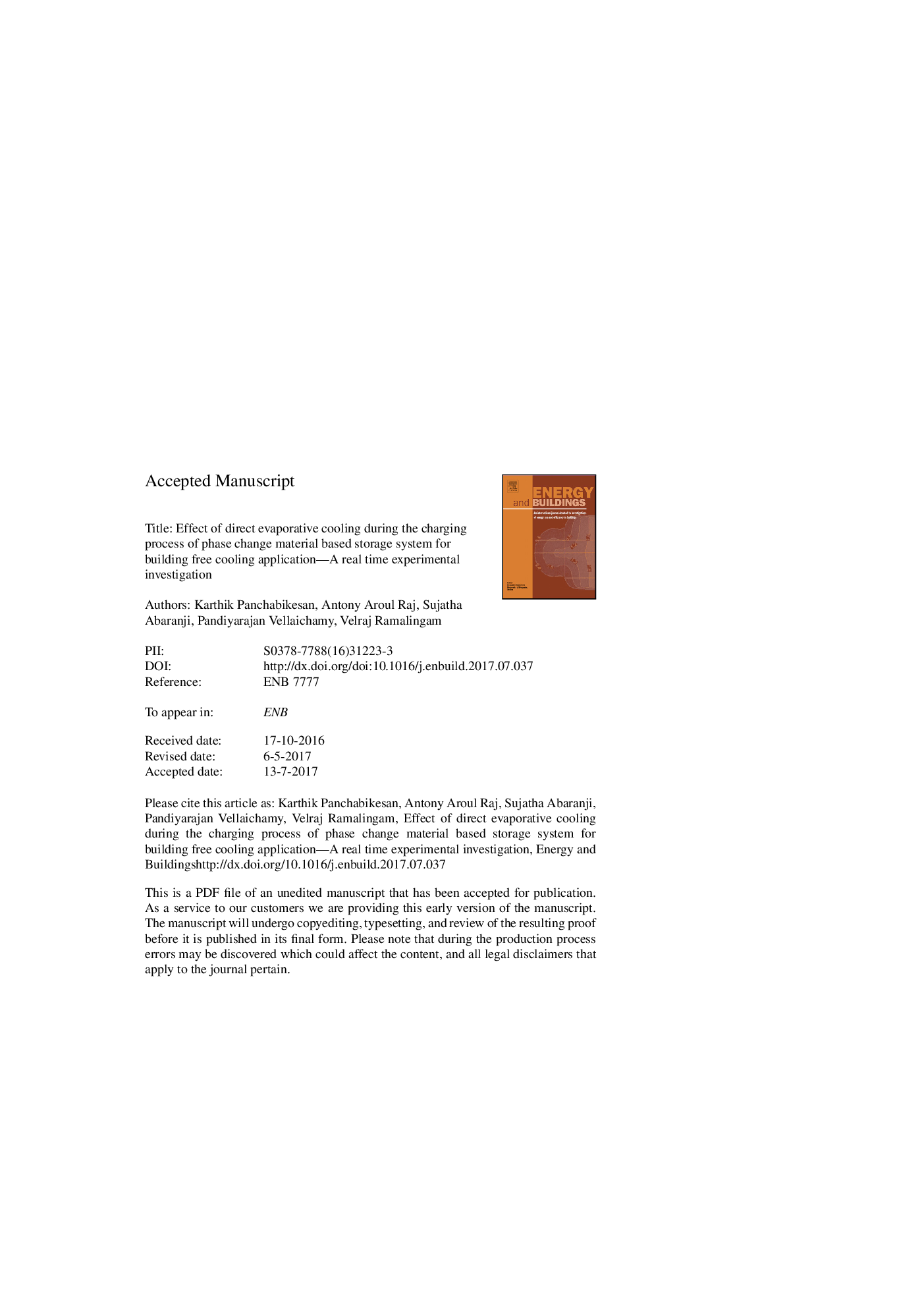| Article ID | Journal | Published Year | Pages | File Type |
|---|---|---|---|---|
| 4918909 | Energy and Buildings | 2017 | 40 Pages |
Abstract
The adoption of phase change material (PCM) based free cooling technology in all the climatic conditions is challenging because of its site-specific nature. In order to support the implementation of free cooling concept in unfavorable climatic condition, a novel hybrid system with the combination of evaporative cooling and PCM based free cooling is proposed herewith. The present experimental work aims to compare and analyze the charging behavior of the PCM-based free cooling system without and with the integration of direct evaporative cooling (DEC) unit during the summer month (April) in an Indian city possessing hot-dry climate. By considering the local ambient conditions, PCM with a phase change temperature of 27-29 °C is opted for the present study. The time-temperature history of PCM, instantaneous heat transfer rate, charging efficiency, heat exchange between the storage tank and ambient were analyzed and the respective results are presented. It is inferred from the experiments conducted without the integration of DEC unit that PCMs did not undergo phase transition and remained in the liquid phase even after 8 h of the experimentation due to unfavorable local ambient conditions. However, in the case of experiments conducted with the integration of DEC unit, PCMs at all locations in the thermal energy storage (TES) tank got solidified irrespective of local ambient temperature and reached its freezing temperature. This is due to the reduction in heat transfer fluid (HTF) temperature and the additional temperature driving potential achieved through DEC. Better results in terms of charging duration was obtained for the experiments conducted with higher temperature driving potential than the higher HTF velocities. The main inference from the present study is that it is much possible to store the useful energy in PCM even during the summer season in the hot and dry climatic zone irrespective of local ambient temperature through the integration of DEC unit with the PCM based free cooling system.
Keywords
GPHPCMLPHHDPEWBTRTDHTFDASLHTESDECCFMResistance Temperature DetectorsHeat transfer fluidDirect evaporative coolingFree coolingWet bulb temperaturelatent heat thermal energy storageRelative humidityData acquisition systemCharging processinformation technologyOuter diameterPhase change materialsPhase change materialwattsHigh-density polyethylenekilowatt
Related Topics
Physical Sciences and Engineering
Energy
Renewable Energy, Sustainability and the Environment
Authors
Karthik Panchabikesan, Antony Aroul Raj V., Sujatha Abaranji, Pandiyarajan Vellaichamy, Velraj Ramalingam,
